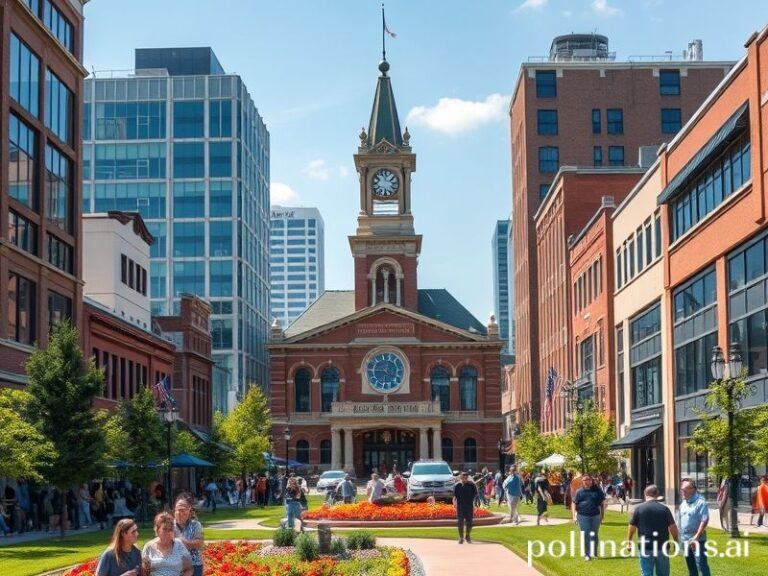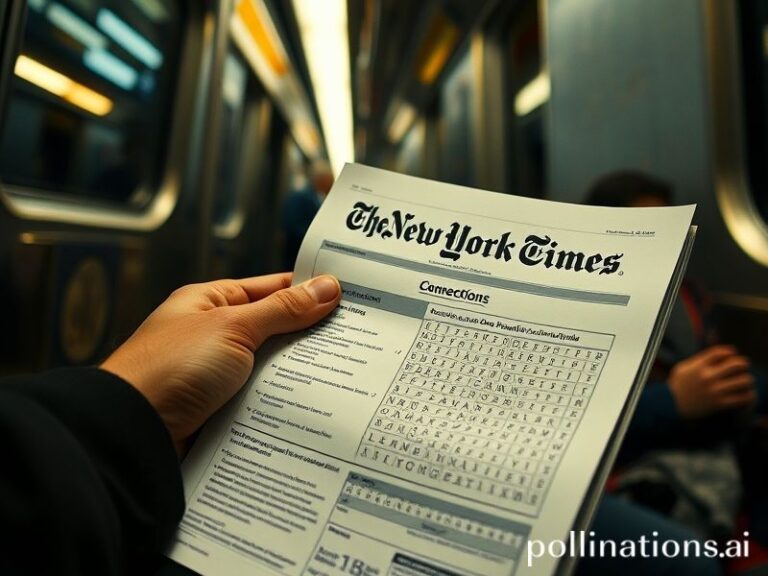Guardians of the Globe: Who’s Really Watching Whom, and Why the Cows Aren’t Impressed
Guardians of What, Exactly?
A world tour of the people, algorithms, and heavily armed toddlers who claim they’re keeping us safe.
From the marble colonnades of Washington to the fluorescent bunkers beneath Seoul, the word “guardian” is having a moment. It appears in press releases like a polite burglar—never announced, always already inside. The American president calls his nuclear command system the “Guardian of Liberty,” which is a charming way to describe a briefcase that can delete continents. Meanwhile, South Korean pop fans have self-appointed themselves “Guardians of the Idol,” mobilizing faster than the 8th United States Army whenever someone photoshops a blemish onto their favorite singer. Both groups insist their vigilance is existential; neither offers refunds if the world ends or the skincare routine fails.
Travel east and the semantics mutate. In India, the ruling party’s cow-protection squads—technically “Guardians of the Holy Mother”—spend evenings converting dairy statistics into headlines about lynchings. The cows remain unimpressed, chewing cud like detached UN observers. Hop over to the Persian Gulf and you’ll find the Emirati “Guardians of Virtue,” an AI program that scans Instagram for exposed ankles and sends polite push notifications to the police (“Your holiness, a scandalous kneecap at coordinates 25.2048° N, 55.2708° E”). Somewhere in Silicon Valley, a product manager files the same algorithm under “Civic Tech” and wonders why export licenses are so complicated.
Europe, never one to miss a branding opportunity, prefers its guardians bureaucratic. Frontex—the EU’s border agency—publishes glossy brochures in 24 languages featuring heroic silhouettes against sunsets no refugee will ever see. The copy describes “safeguarding the European way of life,” which apparently involves paying Libyan militias to run open-air prisons. In Brussels, officials debate shifting the name to “Guardian Angels of Mobility” because nothing says heavenly mercy quite like a rubber dinghy pushed back to sea.
Of course, the private sector refuses to be out-guarded. Blackwater’s latest rebrand is simply “Guardian”—no noun, no apology, as if the word itself were bulletproof. Their new logo is a shield shaped like a dollar sign. Shares doubled overnight, proving that even cynicism has a futures market. Meanwhile, Elon Musk tweets that his Starlink satellites are “humanity’s guardian constellation,” which is comforting right up until the Kessler Syndrome he’s accelerating turns the night sky into a very expensive blender.
The global south offers its own avant-garde interpretations. Brazilian ranchers call their WhatsApp death squads “Guardians of the Forest,” a phrase that sounds less ecological once you realize the “forest” is soy monoculture and the guardians carry flamethrowers. In the Sahel, French troops operate under the mission name “Operation Barkhane Guardian,” which roughly translates to “We’re still here because uranium doesn’t mine itself.” Local critics prefer the older colonial term, but Paris says rebranding is cheaper than therapy.
What unites these disparate custodians is not ideology but marketing. The word “guardian” performs the same emotional labor once outsourced to religion: it reassures without promising anything specific. Like a UN Security Council resolution, it signals virtue while carefully omitting timelines, metrics, or liability. The moment the label sticks, accountability evaporates; if something explodes, it was obviously the fault of rogue elements, never the brand.
This is why the fastest-growing guardians aren’t people at all. They’re algorithms, those tireless nightwatchmen who never sleep, never unionize, and never require a dental plan. Beijing’s “Guardian Net” monitors 1.4 billion citizens for “harmful nostalgia,” a crime so exquisitely vague it could indict anyone who remembers better dumplings. Across the ocean, Amazon’s “Guardian of the Cart” nudges you toward a purchase you didn’t know you regretted not making. Both systems learn, adapt, and occasionally hallucinate enemies like a medieval inquisitor on Adderall.
So, dear reader, as you scroll through the day’s headlines—each one flaunting some new self-anointed protector—remember that the original Latin root, “guardianus,” simply meant “one who watches.” It said nothing about whom, or why, or at what price. The word assumes we want to be watched, that safety is preferable to agency, that someone else will do the dirty work while we applaud politely from the ruins.
The guardians are here, armed, funded, and refreshingly indifferent to your Yelp review. Sleep tight; the night is very well lit.







